Filter News
Area of Research
- Advanced Manufacturing (5)
- Biology and Environment (31)
- Building Technologies (2)
- Clean Energy (76)
- Computer Science (3)
- Electricity and Smart Grid (1)
- Energy Sciences (1)
- Functional Materials for Energy (1)
- Fusion and Fission (4)
- Fusion Energy (2)
- Materials (16)
- Materials for Computing (5)
- National Security (22)
- Neutron Science (3)
- Nuclear Science and Technology (2)
- Quantum information Science (3)
- Supercomputing (17)
News Topics
- (-) Cybersecurity (35)
- (-) Sustainable Energy (122)
- 3-D Printing/Advanced Manufacturing (117)
- Advanced Reactors (34)
- Artificial Intelligence (88)
- Big Data (50)
- Bioenergy (88)
- Biology (96)
- Biomedical (58)
- Biotechnology (21)
- Buildings (55)
- Chemical Sciences (60)
- Clean Water (29)
- Climate Change (95)
- Composites (25)
- Computer Science (184)
- Coronavirus (46)
- Critical Materials (25)
- Decarbonization (75)
- Education (4)
- Element Discovery (1)
- Emergency (2)
- Energy Storage (108)
- Environment (192)
- Exascale Computing (36)
- Fossil Energy (5)
- Frontier (41)
- Fusion (53)
- Grid (61)
- High-Performance Computing (83)
- Hydropower (11)
- Irradiation (3)
- Isotopes (49)
- ITER (7)
- Machine Learning (46)
- Materials (141)
- Materials Science (137)
- Mathematics (6)
- Mercury (12)
- Microelectronics (2)
- Microscopy (51)
- Molten Salt (8)
- Nanotechnology (60)
- National Security (60)
- Net Zero (12)
- Neutron Science (130)
- Nuclear Energy (105)
- Partnerships (41)
- Physics (59)
- Polymers (31)
- Quantum Computing (31)
- Quantum Science (66)
- Renewable Energy (2)
- Security (24)
- Simulation (45)
- Software (1)
- Space Exploration (25)
- Statistics (3)
- Summit (57)
- Transformational Challenge Reactor (7)
- Transportation (94)
Media Contacts
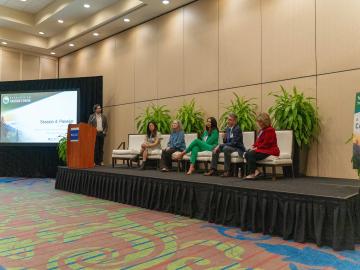
ORNL hosted the second annual Appalachian Carbon Forum in Lexington March 7-8, 2024, where ORNL and University of Kentucky’s Center for Applied Energy Research scientists led discussions with representatives from
The United States could triple its current bioeconomy by producing more than 1 billion tons per year of plant-based biomass for renewable fuels, while meeting projected demands for food, feed, fiber, conventional forest products and exports, according to the DOE’s latest Billion-Ton Report led by ORNL.
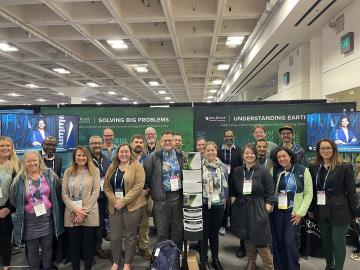
ORNL scientists and researchers attended the annual American Geophysical Union meeting and came away inspired for the year ahead in geospatial, earth and climate science.
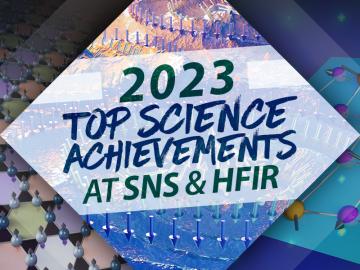
The 2023 top science achievements from HFIR and SNS feature a broad range of materials research published in high impact journals such as Nature and Advanced Materials.

Scientists at ORNL used their knowledge of complex ecosystem processes, energy systems, human dynamics, computational science and Earth-scale modeling to inform the nation’s latest National Climate Assessment, which draws attention to vulnerabilities and resilience opportunities in every region of the country.
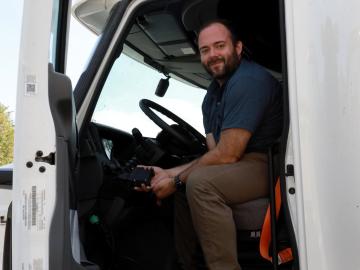
As vehicles gain technological capabilities, car manufacturers are using an increasing number of computers and sensors to improve situational awareness and enhance the driving experience.
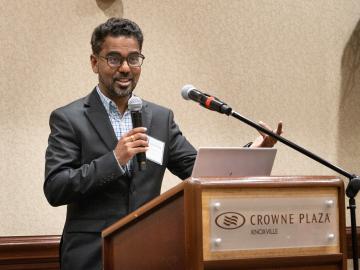
The Department of Energy’s Oak Ridge National Laboratory hosted its Smoky Mountains Computational Science and Engineering Conference for the first time in person since the COVID pandemic broke in 2020. The conference, which celebrated its 20th consecutive year, took place at the Crowne Plaza Hotel in downtown Knoxville, Tenn., in late August.
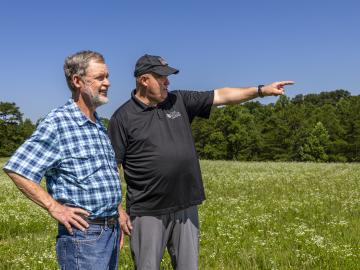
Carl Dukes’ career as an adept communicator got off to a slow start: He was about 5 years old when he spoke for the first time. “I’ve been making up for lost time ever since,” joked Dukes, a technical professional at the Department of Energy’s Oak Ridge National Laboratory.
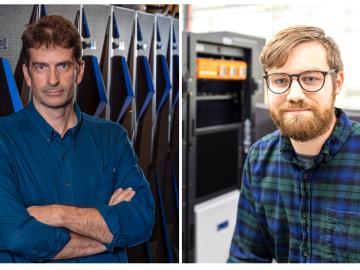
Tom Karnowski and Jordan Johnson of ORNL have been named chair and vice chair, respectively, of the East Tennessee section of the Institute of Electrical and Electronics Engineers, or IEEE.
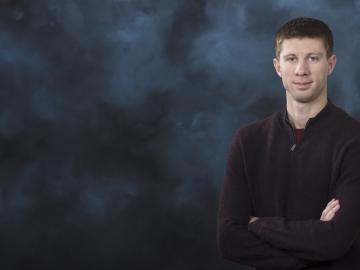
Mike Huettel is a cyber technical professional. He also recently completed the 6-month Cyber Warfare Technician course for the United States Army, where he learned technical and tactical proficiency leadership in operations throughout the cyber domain.




